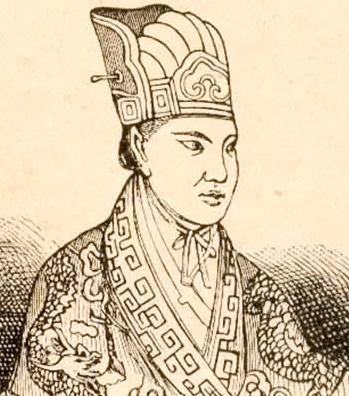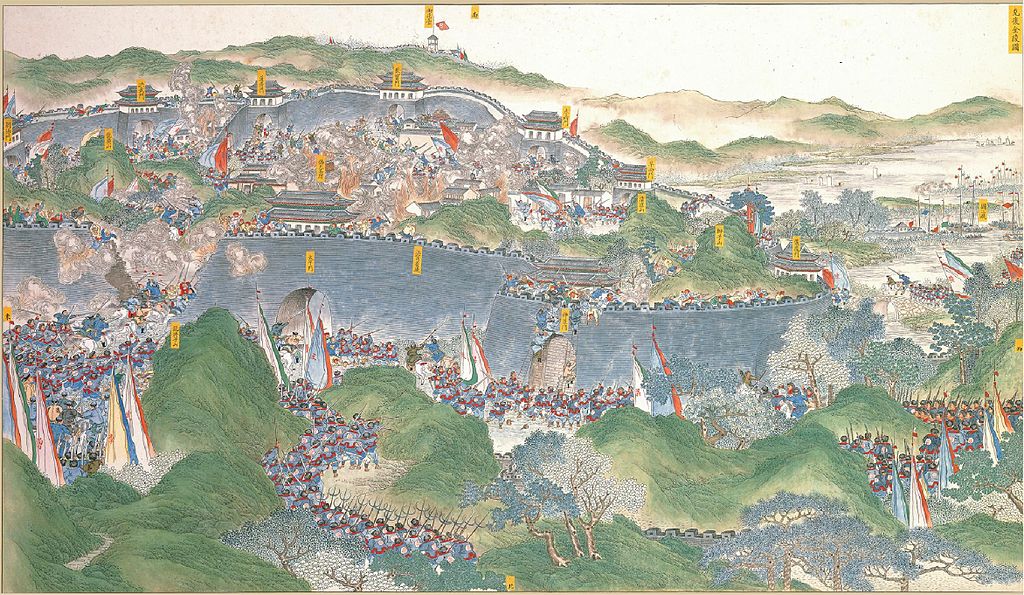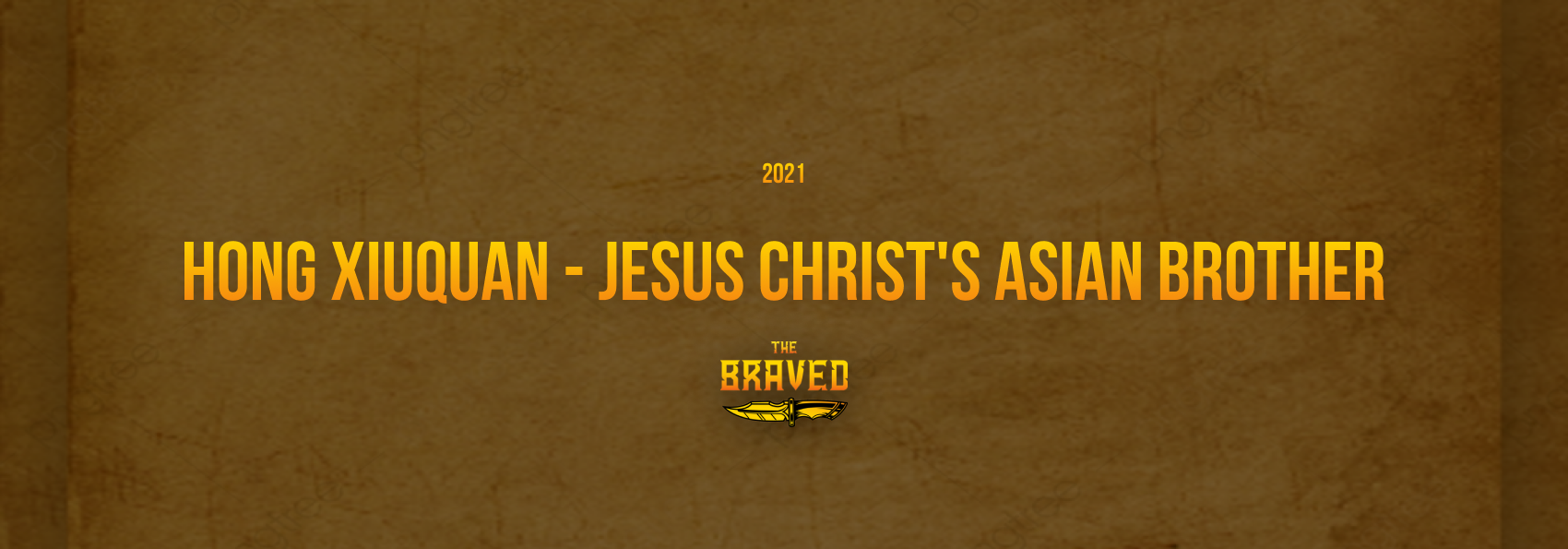Did you know what Jesus Christ had a Chinese brother who commanded the Taiping Rebellion? Did you know the Taiping Rebellion occurred over 1,800 years after Jesus died? This is the story of Christian Chinese revolutionary Hong Xiuquan.
The early days of Hong Xiuquan

Hong’s mother, Madam Wang, gave birth to him on the 1st day of 1814 in Fuyuan Springs, Hua County, China. His family belonged to the Han Chinese subgroup Hakka, and his name was originally Hong Huoxiu. Young Hong loved books and learning, especially about Confucianism, which was, in short, a way of life. He studied hard at school and travelled to Guangzhou to tackle keju or the Chinese imperial examinations. Despite his enthusiasm, Hong didn’t quite make the savage 1% pass rate.
His parents had blown all their cash on their education, so there was little else for Hong to do than break his back. He worked as a farmer for a time, and then he studied to become a schoolteacher. In 1836, Hong believed he was ready to tackle the exams again. He wasn’t; he failed. But while he was in Guangzhou, he heard an American Protestant preaching about Christianity. The preacher handed Hong some pamphlets. These were the seed that would bloom into Hong’s delusion and, ultimately, war.
Hong Xiuquan witnesses heaven
In 1847, when Hong was 33, he failed the exams for the third time and lost his marbles. In the words of historian Jonathan Fenby, “[Hong] fell into what I suppose was some kind of depressive fit, and he had a vision. He imagined he’d gone up to the skies, and there he had met a very tall man with a long beard and thick belt who had told him to come back to Earth and eradicate the demons […].” Hong believed he had witnessed heaven. The tall man he saw also told him to take the name Hong Xiuquan instead of Hong Huoxiu. He might have seen heaven, but he still needed cash. Until 1843, Hong worked as a teacher near his village, after which he failed his exams again.
Hong Xiuquan becomes Jesus’s brother
With that fourth and final failure, Hong cracked. He looked over the pamphlets the Christian preacher had given him over a decade ago and made a few obvious conclusions. The first was that the tall man in heaven was God and that Hong was God’s son and, therefore, the younger brother of Jesus Christ. The second was that his purpose was to eradicate the demon-loving Qing dynasty. Hong burned all of his books on Confucianism and smashed down his village’s Confucian statues, too. Hong then set out into China to spread the news: he would create a utopian “Heavenly Kingdom” right there in China. And the people were poor and sick and ready to lap up whatever Hong said. He promised them land, and utopia sounded great, too. He even made his own version of the Bible, the Taiping Bible.

Hong Xiuquan creates his Heavenly Kingdom
By 1850, Hong boasted between 10,000 and 30,000 followers. The ruling Qing dynasty was freaking out at this point and tried to crush Hong’s rebellion in the Jintian Uprising in January the following year. They lost, and Hong beheaded the commander of the enemy army. Hong continued to gain momentum and killed anyone who stood in his way. Some sources state he killed up to 30,000 people deemed enemies each day. His numbers grew to the hundreds of thousands, and in March 1853, he seized Nanjing (aka. Naking) and made it the capital of the Taiping Heavenly Kingdom. At its height, Hong ruled a population of 30 million in south-eastern China. The Qing dynasty cracked down on it, though, ending the so-called Taiping Rebellion in 1864. As many as 20 million people lost their lives throughout the 14-year conflict. As per Jonathan Fenby, in the waning years of Hong’s Heavenly Kingdom, “Hong […] retreated to his palace with his 60 or so concubines listening to music played on an organ taken from the local Christian church […].”
Hong Xuiquan accidentally kills himself (maybe)
But it’s likely Hong didn’t lose his life in battle. While Nanjing was under siege, Hong told his followers to subsist on the Biblical substance manna. It’s unclear what they were actually eating, though, if anything. It’s possible that Hong was simply munching the weeds growing around his palace, which led to his death on the 1st of June 1864. Hong’s followers buried him, but the Qing dug him back up, chopped his head off, and then burned his body. All this because of a few failed exams.
